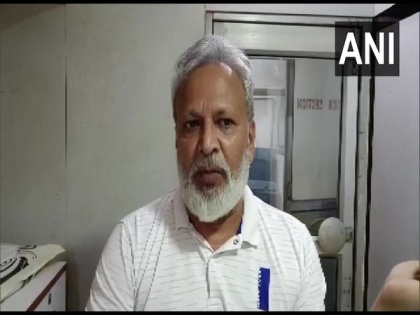"Someone duplicated cough syrup to defame India": Managing Director, QP Pharma Chem Ltd after WHO issues alert
By ANI | Published: April 26, 2023 09:58 AM2023-04-26T09:58:10+5:302023-04-26T10:00:02+5:30
Dera Bassi (Punjab) [India], April 26 : After the WHO issued a product alert over India-made cough syrup in ...

"Someone duplicated cough syrup to defame India": Managing Director, QP Pharma Chem Ltd after WHO issues alert
Dera Bassi (Punjab) [India], April 26 : After the WHO issued a product alert over India-made cough syrup in Marshal Islands and Micronesia, Managing Director, QP Pharma Chem Limited, Sudhir Pathak said that someone had duplicated the syrup to defame the Government of India.
The World Health Orgsation has issued a 'WHO Medical Product Alert' after "Substandard (contaminated)" Guaifenesin Syrup TG Syrup was found in the Marshall Islands and Micronesia.
The manufacturer of the affected product is QP Pharma Chem Limited in Punjab, India. The marketer of the product is Trillium Pharma in Haryana, said WHO.
"Food And Drug Administration (FDA) of Punjab doubt that someone has duplicated the product (cough syrup) sent to Cambodia and then sold it in the Marshall Islands and Micronesia to defame the Government of India," said Sudhir Pathak, MD of the firm based in Dera Bassi, Punjab .
Pathak said that the FDA department had taken samples of cough syrup and were sent to Cambodia for testing.
"The FDA department has taken samples of cough syrup sent to Cambodia for testing. A total of 18,336 bottles of cough syrup were sent," he added.
According to the WHO report,the Guaifenesin Syrup TG Syrup was found with unacceptable amounts of contaminants of diethylene glycol and ethylene glycol.
"Samples of the GUAIFENESIN SYRUP TG SYRUP from the Marshall Islands were analysed by quality control laboratories of the Therapeutic Goods Administration (TGA) of Australia. The analysis found that the product contained unacceptable amounts of diethylene glycol and ethylene glycol as contaminants," read a WHO report.
"To date, neither the stated manufacturer nor the marketer have provided guarantees to WHO on the safety and quality of these products," it read further.
Disclaimer: This post has been auto-published from an agency feed without any modifications to the text and has not been reviewed by an editor
Open in app